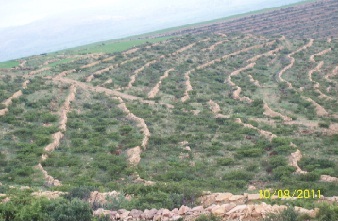10.1 Emerging Challenges for Sustainable Agriculture
In
the recent past, agricultural development policies have been remarkably
successful at emphasizing external inputs as the means to increase food
production. This has led to growth in global consumption of pesticides,
inorganic fertilizer, animal feed-stuffs, and tractors and other machinery.
These external inputs have, however, raised the issue of environmental concern.
The basic challenge for sustainable agriculture is to make better use of
internal resources. This can be done by minimizing the external inputs used, by
regenerating internal resources more effectively, or by combinations of both at
optimum level.

Evidence
is now emerging that regenerative and resource-conserving technologies and
practices can bring both environmental and economic benefits for farmers,
communities, and nations. They have made
use of resource-conserving technologies such as integrated pest management,
soil and water conservation, nutrient recycling, multiple cropping, water
harvesting, and waste recycling. In all, there has been action by groups and
communities at the local level, with farmers becoming experts at managing farms
as ecosystems and at collectively managing the watersheds or other resource
units of which their farms form a part. However, the challenges in this respect are that
most policies still actively encourage use of high level of external inputs and
technologies
-
Sustainability and Levels of Action
A
necessary condition for sustainable agriculture is that large numbers of
farming households must be motivated to participate in resource management.
The success of sustainable agriculture therefore depends not just on the
motivations, skills, and knowledge of individual farmers, but on action taken
by groups or communities as a whole. This makes the task more challenging.
Licensed under the Creative Commons Attribution Share Alike 3.0 License
This Learning Resource was Created by the Regional MSc AICM Program at the Haramaya University RDAE Department with Support of AgShare Project.